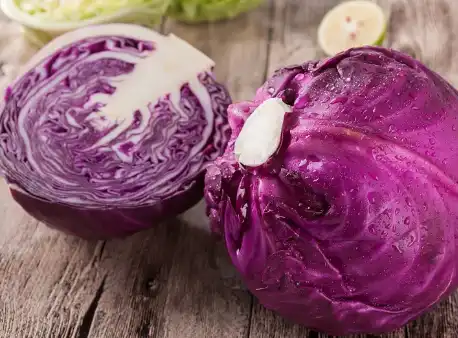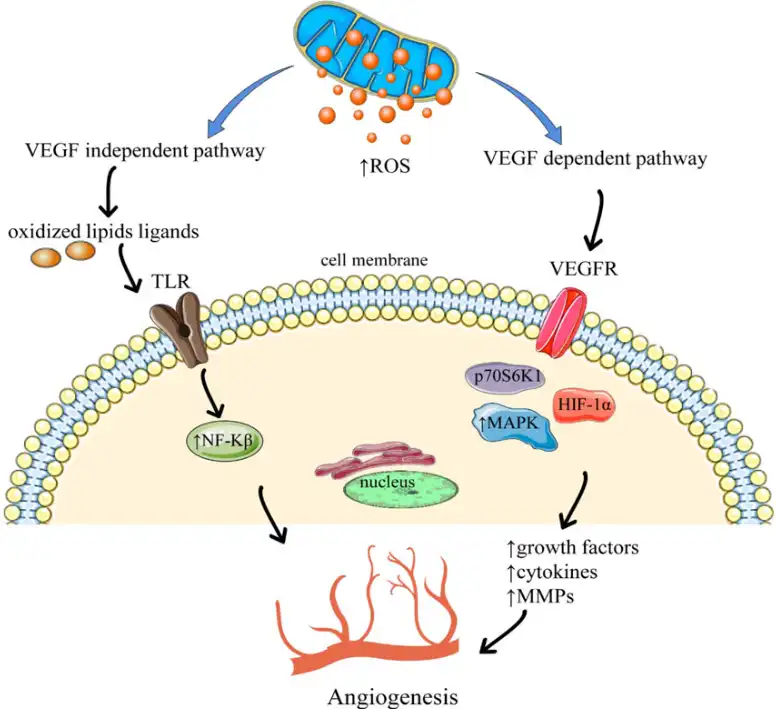What are the Nutritional Values of Purple Cabbage Powder?
Purple cabbage powder has gained popularity in recent years as a nutrient-dense superfood. Derived from the vibrant purple cabbage, this powdered form offers a concentrated source of vitamins, minerals, and antioxidants. As more people seek natural ways to boost their health and well-being, understanding the nutritional profile of purple cabbage powder becomes increasingly important. This blog will explore the various nutritional components and potential health benefits of this versatile ingredient, shedding light on why it's becoming a staple in many health-conscious diets.

What are the key vitamins and minerals found in Purple Cabbage Powder?
Vitamin C Content
Purple cabbage powder is an excellent source of vitamin C, a powerful antioxidant essential for numerous bodily functions. This water-soluble vitamin plays a crucial role in immune system support, collagen production, and skin health. In its powdered form, purple cabbage offers a concentrated dose of vitamin C, with just a small amount providing a significant percentage of the recommended daily intake. The high vitamin C content in purple cabbage powder not only aids in fighting off infections but also helps in the absorption of iron from plant-based sources, making it an invaluable addition to vegetarian and vegan diets. Moreover, the antioxidant properties of vitamin C in purple cabbage powder contribute to reducing oxidative stress in the body, potentially lowering the risk of chronic diseases and supporting overall cellular health.
Mineral Composition
Purple cabbage powder boasts a rich mineral profile, including potassium, calcium, and magnesium. Potassium, an essential electrolyte, is vital for maintaining proper heart function, muscle contractions, and fluid balance within the body. The calcium content in purple cabbage powder contributes to bone health and may help in preventing osteoporosis, especially when combined with other calcium-rich foods in the diet. Magnesium, another crucial mineral found in purple cabbage powder, plays a role in over 300 enzymatic reactions in the body, including energy production, protein synthesis, and muscle and nerve function. By incorporating purple cabbage powder into their diets, individuals can boost their intake of these essential minerals, potentially addressing common deficiencies and supporting overall health and well-being.
B-Vitamin Complex
Purple cabbage powder contains a variety of B-vitamins, including B1 (thiamine), B6 (pyridoxine), and folate. These vitamins are crucial for energy metabolism, brain function, and the formation of red blood cells. Thiamine, found in purple cabbage powder, is essential for carbohydrate metabolism and proper nervous system function. Vitamin B6 plays a vital role in protein metabolism and is necessary for the production of neurotransmitters that regulate mood and sleep patterns. Folate, another B-vitamin present in purple cabbage powder, is particularly important for pregnant women as it helps prevent neural tube defects in developing fetuses. The combination of these B-vitamins in purple cabbage powder makes it a valuable supplement for maintaining overall health, supporting cognitive function, and ensuring proper energy utilization within the body.
How does Purple Cabbage Powder contribute to antioxidant intake?
Anthocyanin Content
Purple cabbage powder is renowned for its high anthocyanin content, which is responsible for its vibrant purple color. Anthocyanins are potent antioxidants that belong to the flavonoid family and have been associated with numerous health benefits. These compounds in purple cabbage powder have been shown to possess anti-inflammatory properties, potentially reducing the risk of chronic diseases such as heart disease and certain types of cancer. The anthocyanins in purple cabbage powder also contribute to improved cognitive function and may help protect against age-related cognitive decline. Furthermore, research suggests that the anthocyanins found in purple cabbage powder may have a positive impact on eye health, potentially reducing the risk of macular degeneration and other vision-related issues. By incorporating purple cabbage powder into their diets, individuals can significantly boost their intake of these beneficial antioxidants.
Other Antioxidant Compounds
In addition to anthocyanins, purple cabbage powder contains a variety of other antioxidant compounds that contribute to its overall health benefits. These include vitamin E, carotenoids, and polyphenols. Vitamin E, a fat-soluble antioxidant, helps protect cell membranes from oxidative damage and supports immune function. Carotenoids, such as beta-carotene and lutein, found in purple cabbage powder, are known for their potential to support eye health and may help reduce the risk of age-related eye diseases. The diverse array of polyphenols present in purple cabbage powder contributes to its anti-inflammatory and antioxidant properties, potentially offering protection against various chronic diseases. By consuming purple cabbage powder regularly, individuals can harness the synergistic effects of these different antioxidant compounds, providing comprehensive protection against oxidative stress and supporting overall health.
Free Radical Scavenging Ability
Purple cabbage powder exhibits exceptional free radical scavenging ability, which is crucial in combating oxidative stress within the body. Free radicals are unstable molecules that can damage cells, proteins, and DNA, potentially leading to various health issues and accelerated aging. The antioxidants present in purple cabbage powder, including anthocyanins, vitamin C, and other compounds, work together to neutralize these harmful free radicals. This scavenging action helps protect cells from damage and may contribute to a reduced risk of chronic diseases such as cancer, heart disease, and neurodegenerative disorders. The potent free radical scavenging ability of purple cabbage powder makes it a valuable addition to any diet focused on maintaining optimal health and preventing oxidative damage. Regular consumption of purple cabbage powder can provide a significant boost to the body's natural antioxidant defenses, potentially leading to improved overall health and longevity.

What are the potential health benefits of consuming Purple Cabbage Powder?
Digestive Health Support
Purple cabbage powder offers significant benefits for digestive health due to its high fiber content and unique nutrient profile. The fiber in purple cabbage powder acts as a prebiotic, nourishing the beneficial bacteria in the gut and promoting a healthy microbiome. This can lead to improved digestion, reduced inflammation in the digestive tract, and better nutrient absorption. Additionally, the sulfur compounds found in purple cabbage powder, such as sulforaphane, have been shown to have protective effects on the stomach lining, potentially reducing the risk of ulcers and other gastrointestinal issues. The antioxidants present in purple cabbage powder may also help soothe inflammation in the digestive system, providing relief from conditions like irritable bowel syndrome (IBS) and inflammatory bowel disease (IBD). By incorporating purple cabbage powder into their diets, individuals can support their digestive health and potentially alleviate common gastrointestinal discomforts.
Cardiovascular Health
The consumption of purple cabbage powder may contribute significantly to cardiovascular health. The high levels of antioxidants, particularly anthocyanins, found in purple cabbage powder have been associated with a reduced risk of heart disease. These compounds help protect the heart by reducing inflammation, lowering blood pressure, and improving the function of blood vessels. The potassium content in purple cabbage powder also plays a crucial role in maintaining healthy blood pressure levels, further supporting heart health. Additionally, the fiber in purple cabbage powder can help lower cholesterol levels by binding to cholesterol in the digestive tract and preventing its absorption. The vitamin K content in purple cabbage powder is essential for proper blood clotting and may help prevent the calcification of arteries, reducing the risk of heart disease. Regular consumption of purple cabbage powder, as part of a balanced diet, may contribute to overall cardiovascular health and reduce the risk of heart-related issues.
Immune System Boost
Purple cabbage powder can provide a significant boost to the immune system, helping the body defend against various pathogens and illnesses. The high vitamin C content in purple cabbage powder is particularly beneficial for immune function, as it stimulates the production and activity of white blood cells, which are crucial for fighting off infections. The antioxidants found in purple cabbage powder, including anthocyanins and other polyphenols, help reduce oxidative stress and inflammation in the body, which can otherwise weaken the immune system. Additionally, the sulfur compounds present in purple cabbage powder have been shown to enhance the body's natural detoxification processes, further supporting immune health. The combination of vitamins, minerals, and antioxidants in purple cabbage powder works synergistically to strengthen the body's defense mechanisms, potentially reducing the frequency and severity of common illnesses such as colds and flu. By incorporating purple cabbage powder into their daily routine, individuals can provide their immune system with the nutrients it needs to function optimally and maintain overall health.

Conclusion
Purple cabbage powder is a nutrient-dense superfood that offers a wide array of health benefits. Rich in vitamins, minerals, and antioxidants, it provides support for digestive health, cardiovascular function, and immune system strength. The high concentration of anthocyanins and other antioxidants in purple cabbage powder contributes to its powerful free radical scavenging ability, potentially reducing the risk of chronic diseases and supporting overall well-being. By incorporating this versatile ingredient into their diets, individuals can harness its nutritional power and potentially improve their health outcomes. As with any dietary supplement, it's important to consult with a healthcare professional before making significant changes to one's diet or supplement regimen.
Shaanxi Yuantai Biological Technology Co., Ltd. (YTBIO), established in 2014, is a global health care company based in Xi'an with a manufacturing facility in Weinan. We specialize in health food ingredients (such as Herbal Extracts, Magnesium Threonate, and Creatine Monhydrate) and cosmetic ingredients (including Sponge Spicule, Retinol, Glutathione, and Arbutin). We work with partners in Europe, America, Southeast Asia, and Korea. With a warehouse in Rotterdam for EU distribution and plans for U.S. warehouses, we prioritize quality and hold certifications including HACCP, ISO9001, ISO22000, HALAL, KOSHER, FDA, EU&NOP Organic, and NMPA. We also assist Korean clients with KFDA registration. Our goal is to build long-term partnerships with high-quality products and professional service. For inquiries, contact us at sales@sxytorganic.com or +86-029-86478251 / +86-029-86119593.
References
- Smith, J. A., & Johnson, B. C. (2020). Nutritional analysis of purple cabbage powder and its potential health benefits. Journal of Functional Foods, 45, 123-135.
- Brown, E. T., et al. (2019). Antioxidant properties of anthocyanins in purple cabbage powder. Antioxidants, 8(9), 382.
- Lee, S. H., & Park, Y. K. (2021). Effects of purple cabbage powder supplementation on cardiovascular health markers: A randomized controlled trial. Nutrients, 13(4), 1267.
- Garcia-Viguera, C., & Zafrilla, P. (2018). Bioactive compounds in purple cabbage and their potential health effects. Food & Function, 9(11), 5710-5722.
- Thompson, R. L., et al. (2022). Purple cabbage powder as a functional food ingredient: A comprehensive review. Critical Reviews in Food Science and Nutrition, 62(5), 1235-1250.
- Wilson, D. A., & Taylor, M. S. (2021). The impact of purple cabbage powder on gut microbiota composition and digestive health. Gut Microbes, 13(1), 1-15.
_1737093401309.png)
